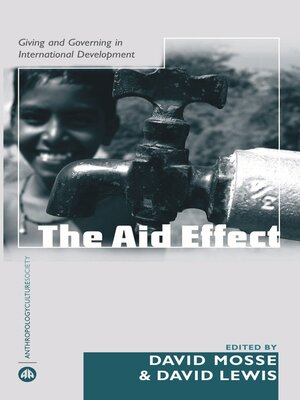The Aid Effect
ebook ∣ Giving and Governing in International Development · Anthropology, Culture and Society
By David Mosse

Sign up to save your library
With an OverDrive account, you can save your favorite libraries for at-a-glance information about availability. Find out more about OverDrive accounts.
Find this title in Libby, the library reading app by OverDrive.



Search for a digital library with this title
Title found at these libraries:
| Library Name | Distance |
|---|---|
| Loading... |
Today international development policy is converging around ideas of neoliberal reform, democratisation and poverty reduction. What does this mean for the local and international dimensions of aid relationships?
The Aid Effect demonstrates the fruitfulness of an ethnographic approach to aid, policy reform and global governance. The contributors provide powerful commentary on hidden processes, multiple perspectives or regional interests behind official aid policy discourses. The book raises important questions concerning the systematic social effects of aid relationships, the nature of sovereignty and the state, and the working of power inequalities built through the standardisations of a neoliberal framework.
The contributors take on new challenges to anthropology presented by a 'global aid architecture' which no longer operates through discrete projects but has moved on to sector wide approaches, budgetary support and other macro-level instruments of development; but they remain faithful to the fieldwork methodology that is anthropology's strength and the source of rare insight.
The Aid Effect demonstrates the fruitfulness of an ethnographic approach to aid, policy reform and global governance. The contributors provide powerful commentary on hidden processes, multiple perspectives or regional interests behind official aid policy discourses. The book raises important questions concerning the systematic social effects of aid relationships, the nature of sovereignty and the state, and the working of power inequalities built through the standardisations of a neoliberal framework.
The contributors take on new challenges to anthropology presented by a 'global aid architecture' which no longer operates through discrete projects but has moved on to sector wide approaches, budgetary support and other macro-level instruments of development; but they remain faithful to the fieldwork methodology that is anthropology's strength and the source of rare insight.







